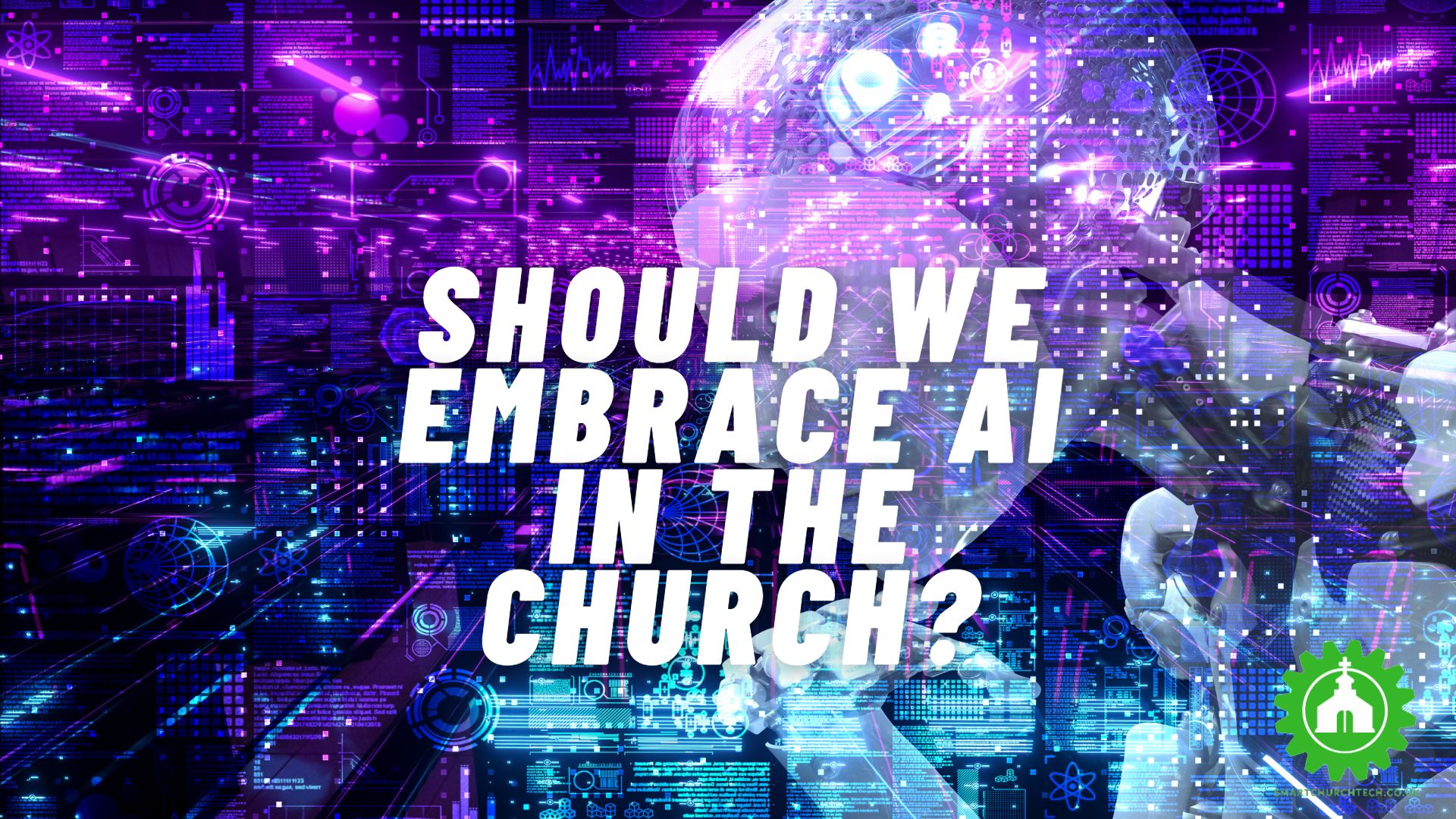Today, we’re going to explore a topic that’s a buzzword in the tech world and beyond: Artificial Intelligence (AI). As we increasingly encounter AI in our daily lives, it’s worth considering how it might also find a place in our churches. Let’s demystify AI, explore its potential benefits and drawbacks, and consider whether it’s something to fear or embrace.
Understanding Artificial Intelligence
AI, at its core, is a branch of computer science dedicated to creating systems capable of performing tasks that usually require human intelligence. This includes things like understanding natural language, recognizing patterns, learning from experience, and making decisions.
AI is often categorized into two types: Narrow AI, which is designed to perform a specific task, such as voice recognition (like Siri or Alexa), and General AI, which can theoretically perform any intellectual task that a human being can do.
General AI is not yet available, but certain systems using Large Language Models (LLM) are demonstrating capabilities similar to those of a human. These include understanding natural language, recognizing images, and making predictions about the future.
Potential Benefits of AI in a Church Context
The church has long been known for its good works and charitable efforts, but it could use AI to make even more of an impact. For example, AI-based tools could be used to identify and predict areas of need in the community, enabling churches to better target their resources.
Some of the areas AI could help include:
- Administrative Efficiency: AI can automate repetitive tasks, freeing up staff to focus on more meaningful work. For instance, AI chatbots can handle basic inquiries, schedule appointments, or send out reminders for church events.
- Personalized Communication: AI can analyze data to understand individual preferences and behaviors, allowing for more personalized communication. For example, an AI system could identify members who usually attend evening services and send them targeted updates about such events.
- Improved Donor Management: AI tools can analyze donation data to identify patterns and trends, helping churches manage their resources more effectively.
- Sermon Transcription & Translation: AI can transcribe sermons for the hearing impaired or translate them into different languages, making your messages accessible to a broader audience.
Potential Drawbacks of AI in a Church Context
- Data Privacy Concerns: AI systems often rely on data, raising concerns about privacy and security. It’s crucial to handle data responsibly, adhering to regulations and best practices.
- Depersonalization: While AI can enable more personalized communication, it can also create a sense of depersonalization if not used judiciously. Churches should strive to maintain a balance between efficiency and personal touch.
- Financial Cost: Implementing AI solutions can be costly, and it’s important to consider whether the benefits outweigh the expense.
- Job Displacement Fears: As with any automation technology, there may be concerns about AI replacing human jobs. It’s essential to remember that AI is a tool designed to enhance human efforts, not replace them.
Is AI Something to Fear?
AI is changing many industries, and its impact will continue to grow. But should we fear it? While it’s important to be aware of the potential risks and challenges associated with AI, it’s also essential to remember that AI is a tool. Like any tool, its value depends on how we use it.
AI has the potential to enhance our ability to serve our congregations and communities effectively, enabling us to communicate more personally, manage resources wisely, and make our messages more accessible. It’s not a replacement for the human touch that is so vital in our churches, but a tool that can free us up to focus more on what we do best: building relationships, providing pastoral care, and sharing the love of Christ.
As with any technological advancement, approaching AI with a mindset of thoughtful discernment is key. Let’s consider how we can harness this tool in ways that align with our values, serve our communities, and glorify God.

